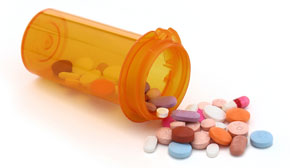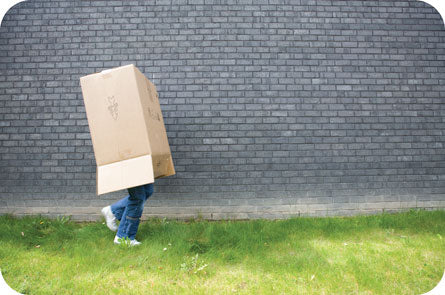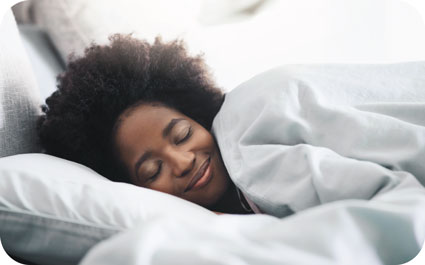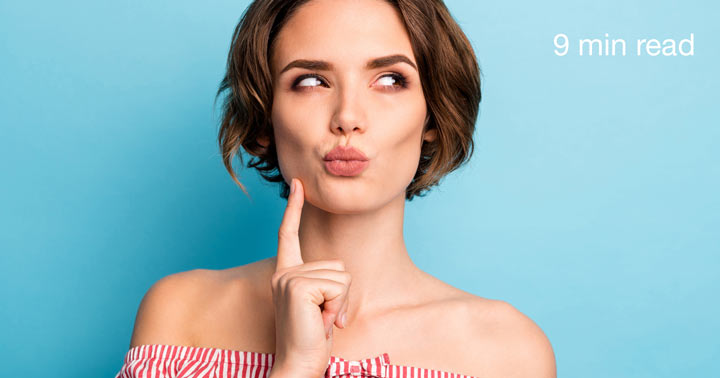Written by: JOE DOLCE
Wonder about CBD and Anxiety?
Understanding CBD as a Remedy for Anxiety
Contents:
Cannabidiol (CBD) is a naturally occurring, non-intoxicating compound found in the resinous flower of hemp and cannabis plants which have a rich history used in medicine going back thousands of years. Doctors and scientists have been testing and confirming the therapeutic properties of CBD recently. A safe, non-addictive substance, CBD is one of more than 140 “cannabinoids,” which are unique to hemp and cannabis.
In cannabis, CBD oil is extracted from the flower of the plant; in hemp it's extracted from the flowers, leaves and stalk.

Hemp-derived CBD that contains less than .3% THC is currently legal in the US, while laws for the EU and UK require less than .2% THC. These percentages (.3% and .2%) were assigned randomly and have no real scientific basis, but by default they have become standardized around the world, so they are likely to be the standard for a long time to come.
As recently as ten years ago, CBD was largely unheard of, primarily because most cannabis plants were being bred and grown for the recreational market, which valued stronger varieties with higher amounts of THC. With the advent of legalization and increasing attention on medical marijuana, growers once again started producing CBD varieties. Today, it’s one of the most frequently searched topics on Google and it has become more widely known – you can find it sold in vitamin shops, health food stores, even gas stations. It’s also being infused into any number of products from hummus, soda and coffee to lip balm, bath bombs, and sexual lubricants. Canopy Growth, the world’s largest cannabis company appointed Martha Stewart as its official advisor on a CBD pet line for “people and their pets”. Spending on CBD products already passed $3 Billion in 2020. Talk about going from zero to 60!
CBD is often described as being “pharmacologically promiscuous” because of its wide range of activities and interactions with several neurotransmitter systems in the body. While patients find its ability to address many situations without side effects attractive, it’s also CBD’s biggest liability among medical professionals who tend to favor single action, targeted drugs. Doctors tend not to trust plant-based compounds that work broadly on multiple targets. This is unlikely to change in the near future.
CBD comes in many forms. Commonly ingested as an oil, tincture, gummy or soft gel, it can also be applied topically as a cream, lotion or salve. In states where laws permit, stronger CBD varieties with impressive terpene profiles are now being smoked or vaporized.
While many of the claims about CBD haven’t been confirmed by large-scale randomized control trials (the gold standard of all medical research), CBD has been clinically proven to treat certain forms of epilepsy and seizure disorders, including Dravet syndrome and Lennox-Gastaut syndrome (LGS), which are resistant to treatment with pharmaceutical antiseizure medications. In 2018, the FDA approved the first ever cannabis-derived medicine for these conditions, Epidiolex.
Stress and anxiety are on the rise in today’s fast-paced culture with an ever increasing number of inputs. They are also the second most often cited reasons that patients report using cannabis (the first is pain). While stress and anxiety aren’t the same conditions, they are both triggered when people feel unable to cope with external situations that feel beyond their control. The typical medical route for treating these conditions is through drugs known as benzodiazepines, which include Xanax and Klonopin. But because these drugs can be habit forming and come with side effects many people are looking for alternate remedies.

Anxiety covers a wide spectrum of emotional discomfort, ranging from feeling overwhelmed to being in a perpetual state of worry or panic. Anxiety often triggers the “fight, flight or freeze” response, which pumps extra adrenaline into the body as it prepares for action. When no action is taken and the nervous energy isn’t discharged physiological confusion sets in. Symptoms can include uncomfortable levels of self-consciousness, irritability, insomnia, muscle tension, fatigue, trembling, sweating, and headaches.
A 2015 analysis of previous studies discusses CBD in relation to numerous forms of anxiety including social anxiety disorder, panic disorder, obsessive-compulsive disorder, generalized anxiety disorder, and post-traumatic stress disorder.
While research points to the role of cannabidiol when examining short-term anxiety, little is known about how it can be used as a prolonged treatment.
For generalized anxiety disorder (GAD), the National Institute on Drug Abuse (NIDA) says that CBD has been shown to reduce stress in lab animals such as rats. Study subjects were observed as having lower behavioral signs of anxiety. Some of the physiological symptoms of anxiety, like increased heart rate, also improved.
Other forms of anxiety, such as social anxiety disorder (SAD) and post-traumatic stress disorder (PTSD) are being studied alongside CBD with hopeful results. A recent medical study on CBD's effects on anxiety-induced insomnia showed that it was easier for the majority of the test subjects to fall asleep and stay asleep.

Social anxiety, hiding in plain sight
One 2011 study researched CBD’s effects on people with social anxiety disorder. Participants were given a high oral dose of 400 mg of CBD or a placebo. Those who received CBD experienced overall reduced anxiety levels. This is an area that is definitely in need of more study.
When it comes to PTSD, other studies have shown that CBD is promising when it comes to addressing the harrowing symptoms including nightmares and replaying negative memories. These studies have examined CBD as a standalone treatment as well as a supplement to pharmaceutical treatments and cognitive behavioral therapy (CBT).
Lower doses of CBD direct the brain to activate the parasympathetic nervous system, an internal function which induces a state of calm. Common reactions like social anxiety and everyday stress are governed by this internal function including more extreme forms of anxiety, or panic attacks. One small study showed it also “reduced anxiety induced by public speaking.” Aspiring TED speakers take note!
Dr. Junella Chin, Chief Medical Officer at MedicalCannabisMentor.com and one of the world’s most experienced medical cannabis physicians, explains the likely biochemical mechanism of action:
“One of the main ways cells in the body communicate with each other is through neurotransmitters called G protein coupled receptors (GPCRs).
"Think of them like an inbox to our neurons. They move information from inside to outside the cell. They regulate immune function, growth, mood and what we eat, taste and smell.
“Humans have over 1000 different types of different GPCRs and cannabinoid receptors (called CB1 and CB2 receptors), and are the most abundant GPCRs in the brain."
“In general, cannabinoids function like a dimmer switch on presynaptic neurons, limiting the amount of neurotransmitters that get released. This, in turn, affects how the cell sends, receives and processes information.”
Dr. Junella Chin explains that "CBD reduces anxiety by mediating the flow of GABA (gamma-aminobutyric acid). GABA, a naturally occurring brain chemical, directs neurons to slow down or stop firing. “It calms the nervous system, induces sleep, relaxes muscles and reduces anxiety, in essence, telling the body to power down.”
“CBD is a 'GABA uptake inhibitor,' meaning it creates surplus GABA in the brain. Correct CBD supplementation can help free patients from the racing thoughts associated with anxiety and stress. When stress is reduced it can often lead to a better night’s sleep. This is crucial to healthy functioning across the board."

“CBD can be used with other anti-anxiety pharmaceutical medications (Klonopin, Xanax), but doses should be adjusted and monitored by a physician.”
One other interesting thing: If someone is too high, CBD naturally acts to counter the effects of anxiety-inducing THC. Lots of informed users consider CBD a life raft in these situations.
While more research is clearly needed, CBD does not appear to have any of the side effects that accompany tranquilizers, sleeping pills or SSRI pharmaceuticals. Those side effects can include: drowsiness, dizziness, unsteadiness, disorientation, headache, sleep disturbance, memory problems, slurred speech, and loss of appetite among others.
Depending on where you live, CBD is increasingly available in dispensaries and health food stores. It is also available online. The problem is knowing which products are most effective.
Due to the lack of federal regulation there are no national labeling standards or good manufacturing practices in place for CBD. This means that quality as well as potency can vary widely, sometimes from bottle-to-bottle in the same brand.
Lack of national regulation obviously puts customers at a great disadvantage. Be sure to read labels carefully. Look for CBD from hemp that is grown with organic standards and laboratory tested. The better companies also post third party (independent) laboratory test results online. Be sure to check.
The Many Ways CBD can be Taken
Choosing a method of administration will depend on different factors such as speed and longevity of effects. One of the quickest ways to get CBD into the bloodstream is by vaporization: Between 15 seconds to two minutes. This method should last 1 to 3 hours, depending on dose.
Topical CBD lotions, creams or salves are also fast acting with effects lasting several hours.
CBD tinctures or oils are quickly absorbed by the tiny capillaries through tissues under the tongue or cheek and hit the bloodstream within 15-30 minutes. Effects generally last 3-4 hours. Even though many instructions direct users to put CBD under the tongue, it’s best to apply a CBD oil or CBD tincture to the area between the gum and cheek and let it remain there for as long as possible. Avoid drinking anything for a few minutes after application.
CBD gummies, soft gels or capsules take the longest time for effects to be felt - between 1 and 2 hours. This method of ingestion offers the longest duration, 6-8 hours.

CBD onset times vary
Many people find that that including 10-50 mg of CBD once or twice daily into their routine is best for chronic conditions. Although some people use it periodically, current wisdom is that steady and regular CBD use is preferable. More research is needed to arrive at precise dosing guidelines. It’s important to note the vast multitudes of CBD products out there vary in strength, formulation, composition and application methods. CBD can yield different results from person-to-person, so listen to your own body and make adjustments that work for you.
It’s also easy to combine these different methods of administration. For example, many people ingest CBD for long term effects and to maintain a sense of general calm, but use a tincture or vaporizer if they anticipate a heightened situation, like a difficult conversation or an argument that's about to occur.
To reduce stress and anxiety consider making these easy lifestyle changes:
• Cut back on stimulants. Drink less caffeine (that includes Coke and other sodas), and avoid nicotine.• Begin a daily stress reduction regime; exercise, meditate, sing, pray…whatever helps you relax.
• Carry a CBD (vape pen or) tincture with you to use in advance of a stressful situation.
These statements have not been evaluated by the Food and Drug Administration. These products are not intended to diagnose, treat, cure, or prevent any disease.




Share Your Thoughts
We won't share, sell or publish your email address.